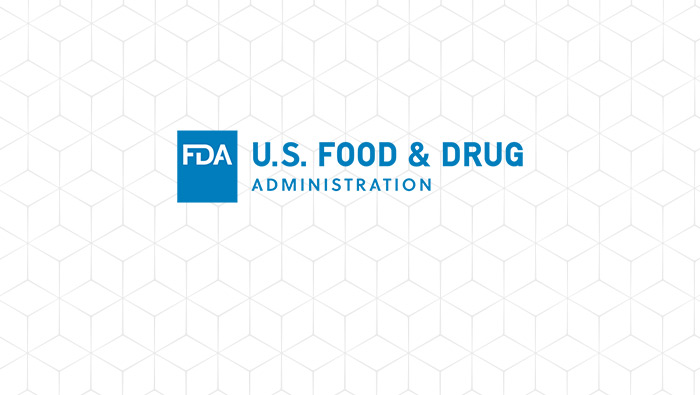On January 25, 2024, the U.S. Food and Drug Administration’s Foods Program posted a list of new / updated food regulations it plans to publish in 2024 and beyond. These include:
Amendments to Registration of Food Facilities
February 2024. The proposed rule would make clarifying changes to general provisions related to the Registration of Food Facilities rule, including edits to the definition of farm.
February 2024. FDA plans to amend its produce safety regulation to address concerns about the practical challenges of implementing certain agricultural water requirements for covered produce other than sprouts, while protecting the public health.
Nutrient Content Claims, Definition of Term: Healthy
April 2024. The rule would revise the requirements for when the claim “healthy” can be voluntarily used in the labeling of human food products to indicate that a food, because of its nutrient content, may be useful in achieving a total diet that conforms to current dietary recommendations and helps consumers maintain healthy dietary practices.
May 2024. This proposed rule would remove certain requirements that currently apply when a manufacturer/processor of human food has identified a hazard that requires a preventive control but does not control that hazard. Although that manufacturer/processor would still be required to provide documentation that the food has not been processed to control the identified hazard, that manufacturer/processor would no longer be required to obtain written assurance from the commercial customer that the identified hazard will be controlled.
June 2024. FDA is proposing to remove certain requirements that currently apply when a manufacturer/processor of animal food has determined that a hazard requires a preventive control but does not control that hazard. Although that manufacturer/processor would still be required to provide documentation that the food has not been processed to control the hazard, that manufacturer/processor would no longer be required to obtain written assurance from the commercial customer that the hazard will be controlled.
Food Standards: General Principles and Food Standards Modernization
October 2024. This proposed rule would require the front of food labels to display certain nutrition information to help consumers, especially those with lower nutrition knowledge, make more informed dietary choices. Front-of-package (FOP) nutrition labeling is intended to complement the Nutrition Facts label on packaged foods by giving consumers additional context to help them quickly and easily identify foods that can help them build a healthy eating pattern.
October 2024. FDA is proposing to revise certain written assurance requirements that currently apply to importers of human or animal food under the FSVP rule when they identify hazards that require a control, and the hazards are controlled after importation. The proposed rule would align with similar revisions that FDA is proposing for written assurance requirements that currently apply under the preventive controls regulations and the requirements that apply to farms under the produce safety regulation.
Fish and Shellfish: Canned Tuna Standard of Identity and Standard of Fill of Container
No Date Provided. FDA is proposing to amend the requirements for the canned tuna standard of identity and standard of fill of container.
Amendment of Procedural Requirements for Food Additive Petitions
June 2025. The Food and Drug Administration (FDA) is proposing to amend sections of our food additive and food additive petition (FAPs) regulations to modernize the procedural requirements related to the data requirements, submission procedures, review process, and regulatory timeframes for FAPs.
Amendment of Procedural Requirements for Color Additive Petitions
June 2025. The Food and Drug Administration (FDA) is proposing to amend procedural requirements for color additive petitions (CAPs). This action, if finalized, would modernize the procedural requirements related to the data requirements, submission procedures, review process, and regulatory timeframes for CAPs.
For a complete list, visit Foods Program Regulations Under Development | FDA.
Additionally, the following five topics have been added to the list of guidance documents the FDA expects to publish by the end 2024:
- Notifying FDA of a Permanent Discontinuance in the Manufacture or an Interruption of the Manufacture of an Infant Formula; Draft Guidance for Industry
- Action Levels for Lead in Food Intended for Babies and Young Children: Guidance for Industry
- The Food Traceability Rule: Questions and Answers; Draft Guidance for Industry
- Hazard Analysis and Risk-Based Preventive Controls for Human Food; Chapter 12: Preventive Controls for Chemical Hazards: Draft Guidance for Industry
- Voluntary Sodium Reduction Goals: Target Mean and Upper Bound Concentrations for Sodium in Commercially Processed, Packaged, and Prepared Foods (Edition 2): Draft Guidance for Industry
While guidance documents do not impose legally enforceable requirements, they will represent the FDA’s current thinking on a specific topic. For a complete list of FDA guidance documents, visit Foods Program Guidance Under Development | FDA.
EAS Consulting Group will closely monitor these and other FDA updates throughout 2024 and beyond, communicating expectations and analyses to our clients as available.
In the meantime, a thorough review of your regulatory compliance systems may be warranted so that you will be able to quickly understand and pivot to the FDA’s new expectations. Reach out to your regulatory partners at EAS Consulting Group with help determining regulatory compliance.
Posted in FDA and USDA Regulatory Update, Foods.
